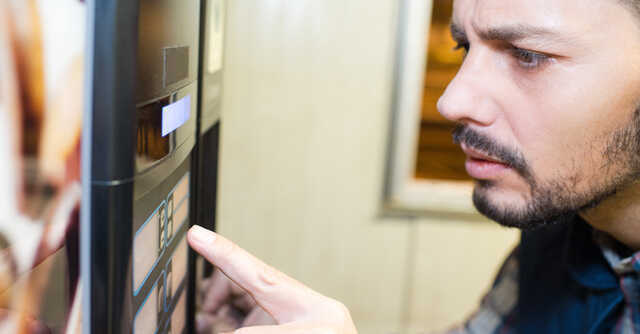
Hybrid workers will return to cafeterias with automated food delivery machines


In an effort to ensure covid-19 protocols were followed, authorities at the Beijing Olympics employed automated machines that would cook food and deliver it to guests without human intervention earlier this year. Employees returning to work as more firms adopt hybrid work protocols in India are set to encounter similar automated machines at their cafeterias.
The machines employed in Beijing could cook anything from noodles to hamburgers, as long as the core ingredients were provided in advance. In much the same way, companies in India are creating automated cafeterias, where machines will make snacks and simpler foods based on pre-fed ingredients.
Instead of walking up to a cafeteria manager, employees will encounter food kiosks. These kiosks use internet of things (IoT) sensors to monitor food being prepared and artificial intelligence for quality assurance. Humans will enter the ingredients in separate compartments, while users simply have to press buttons to pick the food they want. The ingredients are transferred to a cooking chamber, mixed and cooked automatically.

Chennai-based cafeteria management company, CafeXT, is hoping to deploy 30-40 such kiosks this year, supplied by Bengaluru-based robotics firm Xook. CafeXT’s clients include several large enterprises and IT firms and it said it is going to deploy these kiosks in offices in Bengaluru, Hyderabad and Chennai.
“Post-pandemic, our clients are more conscious about hygiene and consistent availability of services than ever before. Corporate employees also care about health and love international dishes,” said Navas Khan, director of Dosa Village Private Limited, the parent company of CafeXT.
Many firms shut down and discontinued cafeteria contracts in the last two years, as offices were shut down or operating with skeletal staff. Now, hygiene is “one of the top reasons” for deploying these automated food machines, said Ashutosh Sharma, vice president and research director at Forrester Research. He also likened these machines to gyms, pool tables etc. which add “the cool quotient” to a workplace.

To be sure, automated food machines aren’t particularly new in India. For instance, tea chain Chaayos deployed robots called “Chai Monks” in its stores after the first lockdowns in 2020. At the time, they provided contactless dining solutions, where users could simply place an order on the app and the robot would prepare the tea without humans touching it.
"All Chaayos Chai bots are 100% IoT enabled. AI enables our chai bots with predictive inventory management, predictive breakdown assessment and peak load management," said Nitin Saluja, founder and chief executive of Chaayos.
In Xook’s robots too, customers scan a QR code and order from an app. However, these machines are designed for offices, cafeterias, and apartment complexes, and take up only 10 sq feet of space, according to the company, and CafeXT said it is running pilots of these in various places right now.

The IoT cameras monitor the ingredient compartments and inform human operators when they’re running low. On the other hand, the company’s chief executive office, Rajagopal Natarajan, said that it has trained deep learning algorithms using images of food items at different stages of preparation. This allows the cameras to help discern quality as well.
According to Ratul Roy, co-founder, and CTO of Xook, the automated food kiosks can prepare over 25 dishes including salads and snack bowls, and in five different cuisines. The company also has a team of chefs who are expanding the recipes the robots can manage. At the moment, only food items, like salads and snack bowls are available.
Further, Natarajan said that Xook won’t charge its customers up-front payments for the kiosks. Instead, companies will be charged based on the food consumed by workers from the machine, in an ‘as-a-service’ model.

A food bowl by Xook will start at Rs. 70 and will go up to Rs. 200, and the company is in talks with firms in Bengaluru and Singapore for direct installations as well.
Xook isn’t the only company either. Euphotic Labs, a Bengaluru-based firm, is planning to deploy a robotic food machine called Nosh to companies. It’s co-founder, Yatin Varachhia, said that it has been working with companies to deploy this in offices using pay-per-use models. Nosh uses a vision algorithm to detect if the food item is being cooked properly as per the recipes.
Industry stakeholders, however, agreed that food automation is still in its infancy. Sharma noted that the speed with which it can prepare a meal is still slow, the variety of food choices are limited, but will improve over time.

